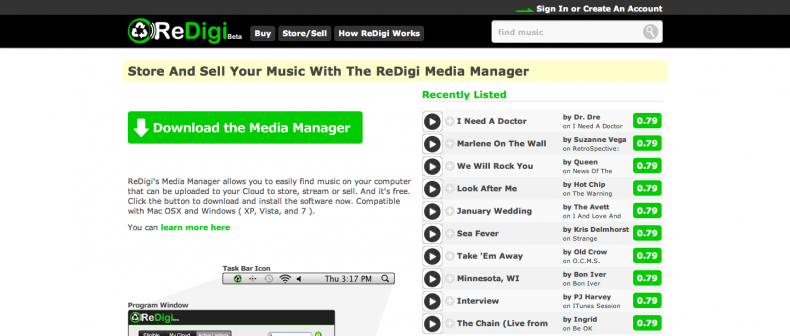
Like many of you, I used to collect vinyl. I loved the hunt. The real hunt, none of that eBay one-click-and-you’re-cool-again nonsense, and engaged in it with all the fervour of an OCD washing their hands. And yet, eventually, it faded, as things are wont to do. This likely had something to do with the facts that A) all of a sudden everyone was a DJ, B) all my friends were better at it than I was, and C) I was faced with a sudden onset of adult fiduciary responsibilities, like cashmere, Sazeracs, and rent.
So I did what people do with toys they no longer play with, I sold them second-hand. In the annals of analogue consumption this was hardly an unusual or difficult proposition. But now that we purchase, or, ahem, ‘purchase’ all of our music digitally, that concept of secondary and tertiary markets has come to an abruptly skewed crossroads, replete with illegibly oscillating traffic lights, Twin Peaks style.
Back in the old-timey days of 2010, when we bought a book it was a physical object, of sheaves of paper bound together. We could do with it what we would; lend it to a friend, forget it at the Oyster Bar, or, yes, even sell it. Come to think of it, way back when we could also use the word “book” without fear of legal repercussions (Sorry Zuck, we’ll call them tomes from now on).
A new(ish) site, Redigi.com, is similarly curious about the evolution of re-sale rights as we move more cohesively from analogue to digital media consumption. Billing itself as “your favorite pre-owned record store, but for digital music files”, Redigi allows users to re-sell their legally purchased music files (and, according to them, “eBooks and other digital goods soon”). When you sell a track to Redigi it instantly wipes the rights to that song from your laptop and mobile devices, and is then made available for sale to someone else on their site.
There are issues with the system. You can’t sell for actual cash, but rather for Redigi credits, allowing you to turn around and pick up others unwanted songs. That would be acceptable, except it’s looking like Redigi may not be around for very long.
The Recording Industry Association of America (RIAA), in its continued fight for the little guy everywhere, sent Redigi a cease-and-desist letter last November. Expanding consumers rights goes directly against it’s members interests. As Professor Lawrence Lessig says (writing about Daguerrotypes in Free Culture) these associations help to “regulate industry, as do all such associations, by keeping competition down so as to keep prices up.”
Capital Records, evidently feeling that a cease-and-desist was too civil, followed up by a massive copyright infringement lawsuit, seeking to have Redigi shut down, as well as damages in the amount of up to $150,000 per song. Their attorneys seem confident in denying a Redigi’s claim that there is a right of resale based on the First Sale doctrine, saying “While ReDigi touts its service as the equivalent of a used record store, that analogy is inapplicable. Used record stores do not make copies to fill their shelves. ReDigi is actually a clearinghouse for copyright infringement and a business model built on widespread, unauthorized copying of sound recordings owned by Plaintiff and others.”
Rhetoric aside, by paying to “own” content, one should ostensibly have the legal right to sell it. Unfortunately, laws are struggling to keep up with continually evolving technological applications. The old-media warhorses seek, as ever, to limit our abilities to recontextualize their business models.
Paradoxically, Redigi may have a saviour in the form of the new-media barons. After Google requested permission to submit an amicus curiae brief against Capitol Records’ preliminary injunction against Redigi, the Judge hearing the case denied the injunction, and is sending the case to trial.
As Google argued, “the continued vitality of the cloud computing industry – which constituted an estimated 41 billion dollar global market in 2010 – depends in large part on a few key legal principles that the preliminary injunction motion implicates.”
Irony abounds, in that the little guy’s fate may now be boiled down to a fight between two multi-billion dollar behemoths. However, in the interest of our collective digital rights, it’s nice that, for once, David has been hitting the MET-rx, and may just bring a fair fight.
_____
Byron Hawes is a Toronto-based writer. Follow him on Twitter @quentincrispy.
For more, follow us on Twitter at @torontostandard, and subscribe to our newsletter.














